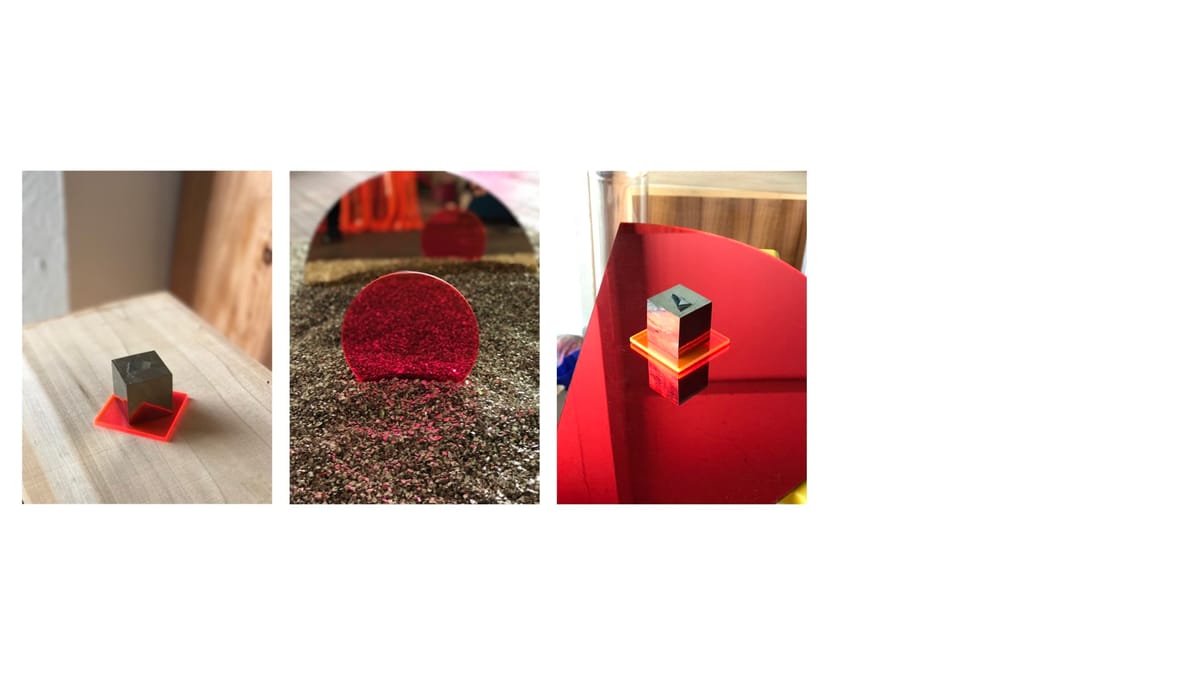Notes: Fractured Rituals
Coffee, Rituals, and ChatGPT: An Encyclopedia, Oracle, and Psychologist

For years, I drank two to three cups of coffee a day. I loved it—adored it.
Coffee was more than a beverage; it was ritual, fuel, life-force. I’d spend hours in coffee shops reading, learning about brewing techniques, visiting coffee farms with friends. I even invested in coffee and beverage-related companies. It wasn’t just a habit—it was joy, identity, and purpose wrapped in a cup.
And then—came the rupture.
A few months ago, I took a light microdose of psilocybin before a hike. Not enough to obliterate my sense of self, but enough to brighten reality, loosen the cracks in the surface, and ground me in the present. It wasn’t dramatic—no cosmic revelations, no ego death. But as I hiked, there came a quiet insistence, a voice, a thought: stop coffee for a month. Not a suggestion, more like a request. The reason it gave? A reset. A stoic challenge, perhaps, to deepen my appreciation for coffee after the hiatus—or so I wondered.
The first days were brutal. Withdrawal hit like a biological collapse: splitting headaches, as though my body rebelled against the severance; my nervous system in open revolt. Exhaustion seeped into my marrow, leaving me hollow - a body without its oil. Aches overwhelmed me, and a subtle, insidious depression slithered in, born of stripped dopamine pathways.
But, by the end of the week, something else emerged. The body reset. My machine re-calibrated. I replaced coffee with hot water, dandelion tea, lemon tea, mugi-cha. The calm was unexpected, but I embraced it. I settled into the month, marking days on the calendar, wondering if I’d return to coffee when it ended.
The month passed. Friends asked: Will you go back? The question hung in the air, weighted with expectation. On the first day of the new month, I tried—the smallest sip from my partner’s cup.
The moment it hit my tongue, my body, spirit and taste buds rebelled again. Immediate feedback loop: a headache, quick and sharp, a flickering of disgust. It tasted like bitter soap, no longer the liquid key to my inner engine, but instead a poison like rejection. My body’s response was immediate and hostile. I felt not just repulsion but an ontological rupture: coffee at this moment no longer possible.
And then—a deeper rupture.
A few days later, I recalled a memory from my childhood in South America. I was walking with a friend when it surfaced: a glass panel had shattered over my mother. Blood, glass—chaos. Our housekeeper, Sra. Carabalí11, rushed in first, gently removing shards from my mother’s skin. She practiced Candomblé and tossed coffee grounds over the blood-soaked floor and my mother’s legs, murmuring about warding off spirits. Coffee as protection, as alchemy—not a stimulant but a banishment.
My friend Carla listened intently and asked, “Could the two be related? The trip, the memory—was one a catalyst for the other?” The question lingered. Was my sudden rejection of coffee tied to this memory, unearthed by the psilocybin? A metaphysical restructuring, perhaps, an expulsion of a lingering psychic threat?
The connection intrigued me, so I turned to ChatGPT for answers. Like a digital oracle, it offered knowledge: coffee’s occult significance, its role in spiritual and magical practices. Coffee, not just as fuel but as divination—a link between the physical and the metaphysical. Coffee grounds scattered for protection, offered to gods and spirits. Coffee as transformation: from bean to brew, an alchemical process. Or was it about control?
I asked ChatGPT to analyze my experience, and it offered several interpretations:
Spiritual Insight: Psychedelics often unveil deeper truths. Your body’s rejection of coffee might signal a need for new forms of energy—calm, grounding, and quiet over stimulation.
Physiological Sensitivity: After psilocybin, the body sometimes rejects familiar substances. Your system’s rebellion—headaches, revulsion—could be a protective mechanism against overstimulation.
Subconscious Realization: Deep within, the trip revealed a truth you’d long ignored. Coffee, once essential, no longer fit. You’d outgrown it.
Reading this I wondered and agreed: was the trip the catalyst, a revelation. Coffee, once a partner in my existence, had become an alien substance, a toxic energy. The rejection wasn't just of coffee, but of the system that once demanded it. The psilocybin had opened a hint to that I no longer needed it but that system no longer had control over me. What I once consumed for power was now a chain. Was this a recalibration, a realignment?
I shouldn’t be surprised. Research2 shows psilocybin helps individuals overcome addictions by fostering new perspectives, emotional openness, and neuroplasticity. Yet experiencing it firsthand is a revelation, a welcome reset.
Three months without coffee, I feel more grounded. My relationship with myself is calmer, less agitated, less prone to outbursts. The irony of using one substance to overcome another addiction doesn’t escape me. But I welcome this calm, this settled energy.
Will the pull of coffee ever return? For now, I ride this wave, awaiting the first crack of something new—a deeper opening. The real work begins now3.
1
I write more about Sra. Carabali in another recent essay: Notes: On Altars: Rituals in Everyday Life and Why You Should Build an Altar
2
See updates on psilocybin @ MAPS : https://maps.org/tag/psilocybin/
3
Maybe take this as a chance to fracture and take a break from one of your daily rituals/habits. A reset.